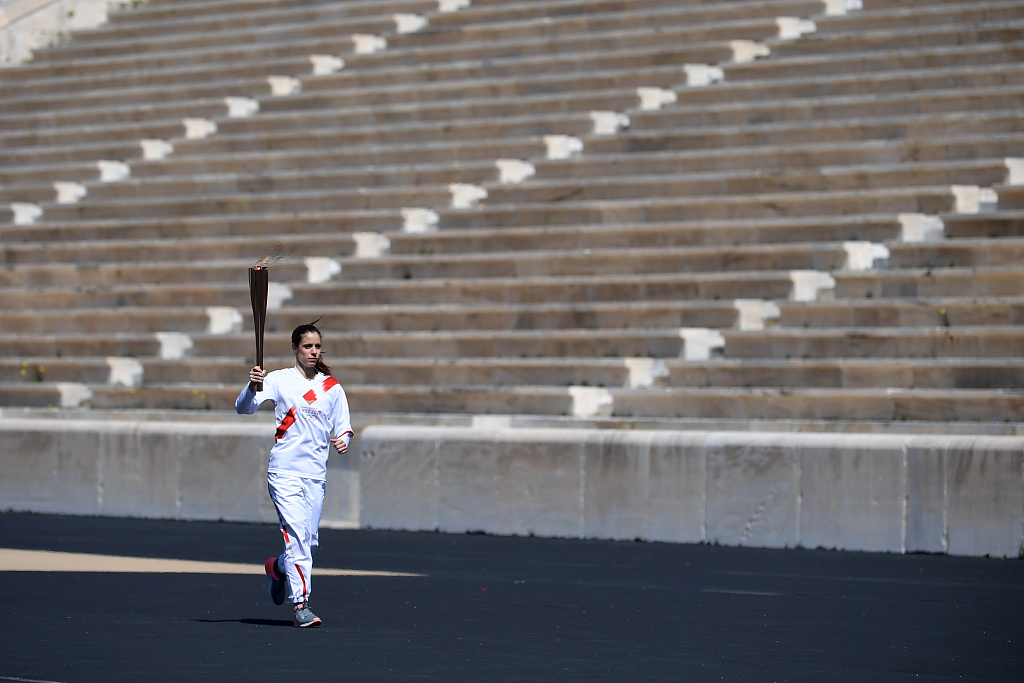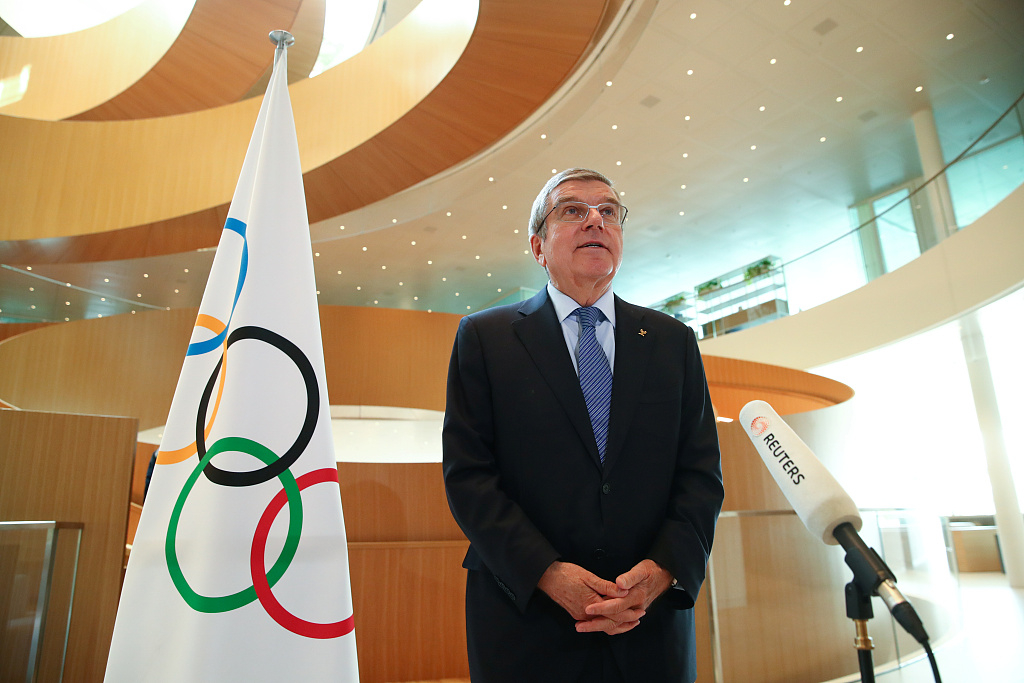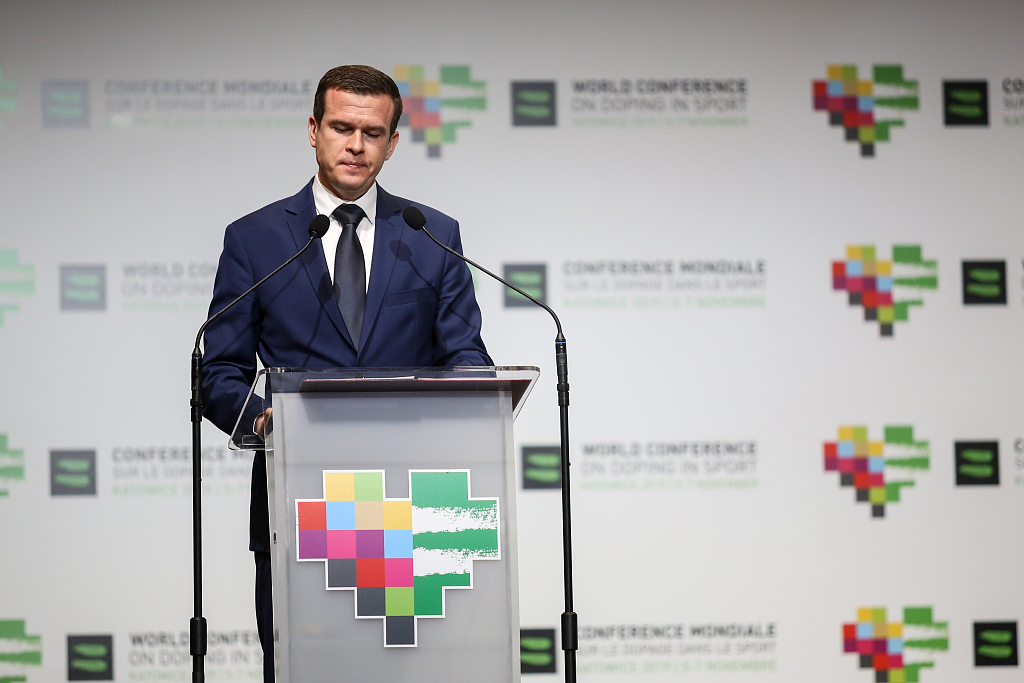
An athlete carries the Olympic torch as the Olympic flame handover ceremony for the Tokyo 2020 Olympic Games is held without spectators amid the COVID-19 pandemic in Panathenaic Stadium, Athens, Greece, March 19, 2020.
An athlete carries the Olympic torch as the Olympic flame handover ceremony for the Tokyo 2020 Olympic Games is held without spectators amid the COVID-19 pandemic in Panathenaic Stadium, Athens, Greece, March 19, 2020.
Athletes completing doping bans over the next year will be eligible to compete in the postponed Tokyo Olympics, an unintended effect of the coronavirus pandemic that has some crying foul.
The 2020 Olympics were officially postponed last month for one year, with the opening ceremony now set for July 23, 2021.
Athletes who have already qualified for Tokyo have been assured that they'll keep their spots as future qualification decisions unfold.
The Athletics Integrity Unit (AIU) estimates that about 40 of the 200 or so banned track and field athletes who stand to gain from the Olympic postponement are international-level competitors. The AIU maintains a global list of track athletes banned for doping violations.

IOC President Thomas Bach speaks in an interview after the decision to postpone Tokyo 2020, in Lausanne, Switzerland, March 25, 2020. /VCG
IOC President Thomas Bach speaks in an interview after the decision to postpone Tokyo 2020, in Lausanne, Switzerland, March 25, 2020. /VCG
In an open newsletter on April 9, among several frequently asked questions about the postponed Tokyo 2020 Olympic Games, the International Olympic Committee (IOC) pointed out the World Anti-Doping Agency (WADA) is responsible for the doping-related issue.
Question: What is the status of athletes serving doping violation suspensions that come to an end before the Tokyo 2020 Olympic Games in July 2021?
IOC's answer: This is an issue to be addressed by the WADA as the global anti-doping regulatory body.
WADA
Witold Banka, president of the WADA, recently said the unforeseen health crisis doesn't mean authorities can "cherry-pick" when athletes have completed their bans.
"While an athlete cannot choose when he or she would like to be ineligible, an (anti-doping organization) cannot either," Banka said. "This is entirely consistent with principles of natural justice and other areas of the law as it relates to sports or even criminal activity. When an offender has done the time, the sentence is considered to be served."
One week ago, the 35-year-old former Polish sports minister and ex-international 400 meters runner, who only took up his post on January 1 after being elected to replace Craig Reedie, said he hoped it would not take long once the pandemic was over to return testing to its "full power."
"COVID-19 is not a space for the athletes to cheat," Banka said in a phone interview from his home in Poland.
"They should not feel it is a time for cheating. Otherwise, the anti-doping agencies will use their weapons to catch them."

Ahead of being elected as WADA's president, Witold Banka speaks at the opening ceremony of the 2019 World Conference on Doping in Sport, organized by WADA in Katowice, Poland, November 5, 2019. /VCG
Ahead of being elected as WADA's president, Witold Banka speaks at the opening ceremony of the 2019 World Conference on Doping in Sport, organized by WADA in Katowice, Poland, November 5, 2019. /VCG
"Testing is not our only weapon and we have some strong ones," Banka said. "There is the athlete biological passport, there is long-term analysis of samples, and there is intelligence. The biological passport is a useful tool for the profile of the athletes. Also they are still obliged to tell us of their whereabouts even if we cannot go and test them."
Banka said the coronavirus pandemic would not deter WADA from its over-riding goal. "This is a new world for all of us," he said. "WADA, though, will do everything to maintain the integrity and beautiful idea of clean sport."
Athletes
Among notable athletes due to come off doping bans are Polish weightlifter Tomasz Zielinski and Irish boxer Michael O'Reilly.
Irish race walker Brendan Boyce, a two-time Olympian who has qualified for Tokyo, believed "it doesn't seem like a fair punishment. They haven't really missed the events they were supposed to miss." He said it in a recent phone interview with AP, adding that restrictions on the number of competitors could make it harder for clean athletes to earn places.
(With input from agencies)